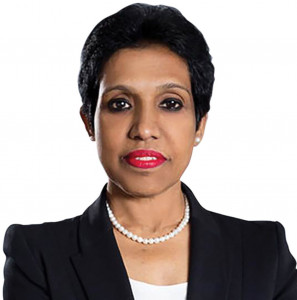Definitions of ‘Import’ and ‘Export’ for Trademark Infringement Purposes in Singapore Clarified in Louis Vuitton Case
22 February 2018

In the recent Singapore High Court case of Louis Vuitton Malletier v. Megastar Shipping Pte Ltd [2017] SGHC 305, the court held that a freight forwarder who was unwittingly sent counterfeit goods into Singapore for transhipment was not liable for trademark infringement.
The case concerned two shipments from China bound for Indonesia via Singapore. The shipments comprised two containers filled with counterfeit goods.
Both containers were inspected and seized by Singapore Customs under the amended border control provisions in the Trade Marks Act. These provisions – which, as the court noted, appear to have been enacted to address the requirements of the US Singapore Free Trade Agreement’s ex officio procedures – allowed for the seizure and detention of the suspected counterfeit goods regardless of whether they were merely in transit through Singapore.
Following the seizure and inspection of the counterfeit goods, the plaintiffs commenced proceedings for trademark infringement against the freight forwarder, Megastar Shipping Pte Ltd.
The basis of the infringement action was that Megastar had imported and/ or exported the counterfeit goods into or from Singapore, contrary to Section 27(1) read together with (4)(c)of the Trade Marks Act.
Since Megastar accepted that the seized goods were counterfeit goods in respect of the relevant trademarks, there were three questions for the court.
The first question was whether, considering that the consignments were merely in transit through Singapore, the goods had in fact been “imported” to Singapore for the purposes of the infringement provisions of the Trade Marks Act.
The answer to that question was yes. Section 2(1) of the Trade Marks Act defines “importing” a thing into Singapore where it is “brought into Singapore by land, sea, or air” in the course of trade. Therefore, since the goods had been brought into Singapore, they had been “imported” for the purposes of Section 27(4)(c) of the Trade Marks Act.
In arriving at its conclusion, the court noted the jurisprudence of the European Court of Justice (ECJ) whereby goods are only “imported” into a member state of the EU where they are intended for circulation in that member state. The court believed that the ECJ’s reasoning on this point was “heavily driven” by concerns relating to the free movement of goods within the EU. For the purposes of the infringement provisions of the Singapore Trade Marks Act, no intention to circulate the goods in the Singapore market is required.
The second question was whether, given that the counterfeit goods had been imported into Singapore, Megastar was their importer for the purposes of infringement proceedings.
That question required a more factsensitive answer. The court held that whether a person could legitimately be described as an “importer” had nothing to do with the labels attached to it by the various customs authorities or the terms used on the relevant forms. It had everything to do with an analysis of the nature of the underlying transaction between the parties to the shipment.
Applying the court’s analysis to the specific facts of the case, the court held that Megastar was not the importer. Amongst other things, the court took into account that (a) Megastar never acquired any property in the counterfeit goods, and (b) Megastar was never actually in physical possession of the containers, which were transhipped under the control of the Port Authority of Singapore acting on Megastar’s instructions.
The final question was whether Megastar was liable for exporting goods under the counterfeit sign.
The answer to that question was no. First, since the goods had been seized and detained by customs prior to their actual export, the success of the infringement action depended on whether a mere intention to export counterfeit goods was sufficient for the purposes of Section 27(4)(c) of the Trade Marks Act. The court held that it could not be. Secondly, in any event, just as Megastar was not an “importer” of the counterfeit goods, neither was it a would-be exporter. Similar reasoning applied. Amongst other things, Megastar was, in respect of the intended export, appointed for the limited purpose of arranging transhipment. It acted merely as an agent carrying out the instructions of its principal.
This decision has come as welcome news to the transhipment industry in Singapore. However, caution should still be exercised since the court’s findings were dependent on the facts.
mirandah asia (singapore) pte ltd
1 Coleman Street
#07-08 The Adelphi
Singapore 179803
T: +65 6336 9696
F: +65 6338 3739
E: singapore@mirandah.com








